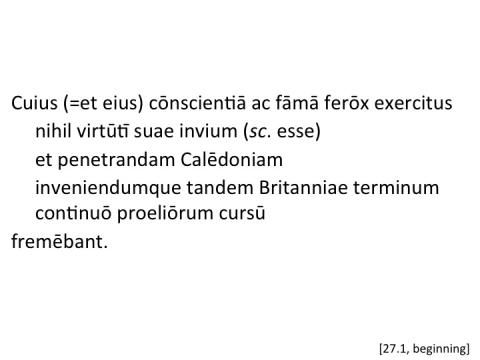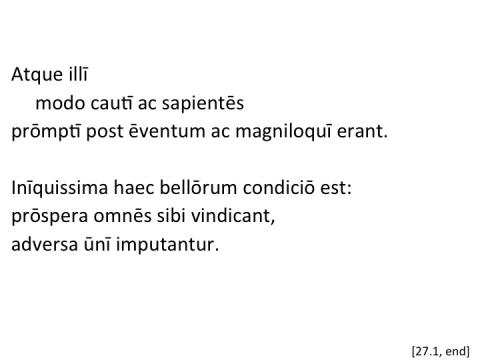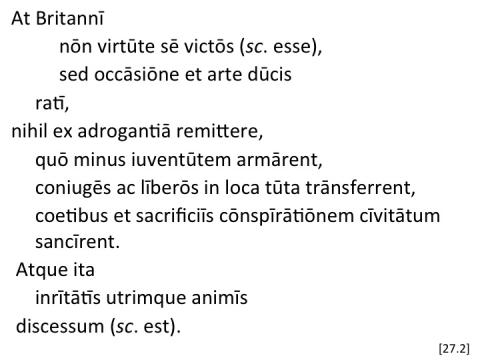[27.1] Cuius cōnscientiā ac fāmā ferōx exercitus nihil virtūtī suae invium et penetrandam Calēdoniam inveniendumque tandem Britanniae terminum continuō proeliōrum cursū fremēbant. Atque illī modo cautī ac sapientēs prōmptī post ēventum ac magniloquī erant. Inīquissima haec bellōrum condiciō est: prōspera omnēs sibi vindicant, adversa ūnī imputantur. [27.2] At Britannī nōn virtūte sē victōs, sed occāsiōne et arte dūcis ratī, nihil ex adrogantiā remittere, quō minus iuventūtem armārent, coniugēs ac līberōs in loca tūta trānsferrent, coetibus et sacrificiīs cōnspīrātiōnem cīvitātum sancīrent. Atque ita inrītātīs utrimque animīs discessum.
notes
vocabulary
media
Text Read Aloud



